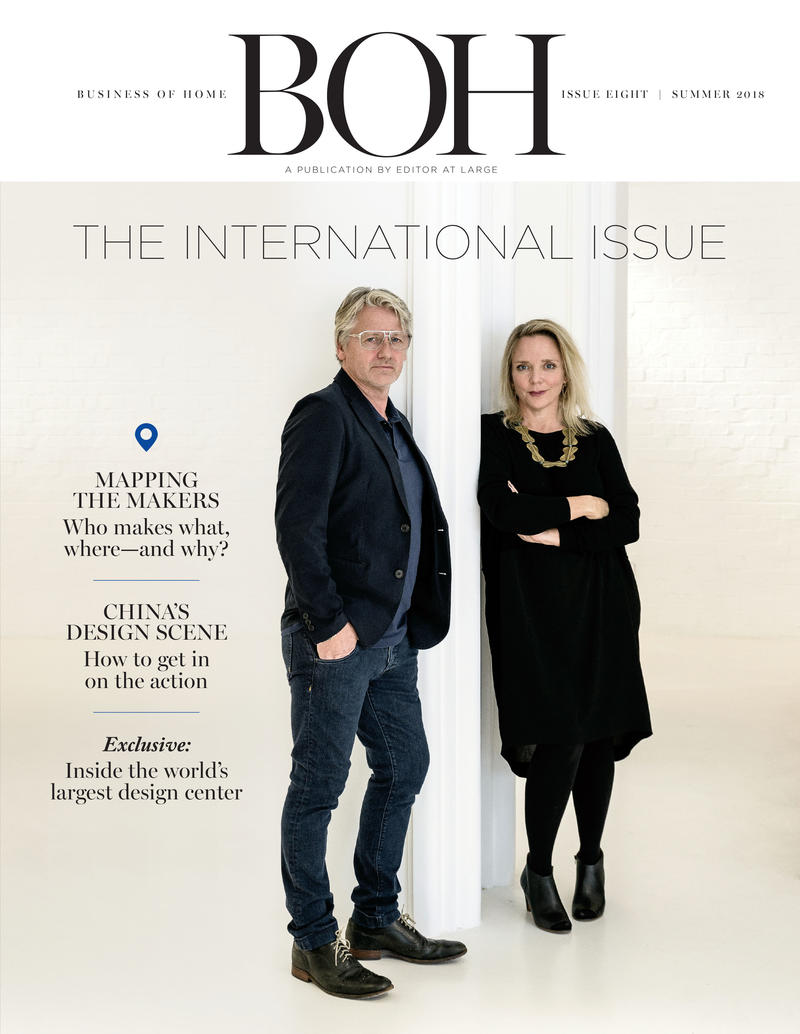Business of Home’s Summer 2018 issue is now out. From a 2.2-million-square-foot, vertically integrated factory in Vietnam that makes a large percentage of the retail furniture sold in the U.S. to collaborations with a global network of artisans that is keeping local crafts alive, the issue focuses on manufacturing, sourcing and design around the world.
BOH editor in chief Kaitlin Petersen introduces the issue:

A visit to IKEA’s headquarters in Älmhult, Sweden, last summer gave me a behind-the-scenes look at how the retailer works to connect with its customers all over the world. The company is at the forefront of adjusting its marketing to suit the tastes of regional markets—this summer’s forthcoming catalog will be translated into 35 different languages and issued in a total of 72 editions.
The changes from version to version may be small, but they’re not insignificant. Altering details like the size of the coffee cup on the kitchen counter (only Americans like big mugs; in Asia, mugs don’t have handles) or tweaking the shape of a window so it’s in keeping with the region’s architectural vernacular works to ensure that each one of us, as we open the catalog, sees our own idea of home within its pages.
Interior designers and luxury brands alike are thinking about how to tailor their offerings to attract new customers abroad—especially in China. And the demand is staggering: Chinese consumers will buy 400 million chairs this year alone, says designer Campion Platt, who is curating a 15,000-square-foot showroom in what will ultimately become a 10.7-million-square-foot, design-focused complex in the city of Shenzhen. But just because a product sells in the United States doesn’t mean it’s guaranteed to be a success internationally. As Kathryn O’Shea-Evans reports, the luxury consumer in China is a discerning one, finely attuned to details like the sound a drawer makes as it closes.
The stories in this issue are a prescient reminder that international sourcing and manufacturing operations are not for the faint of heart. The complexities of shepherding parts and products from across the globe are immense—and that’s before rumors of tariffs and trade wars began swirling in the headlines. There may be myriad ways to get product to market, but one of the most moving commonalities in the snapshots we’ve gathered here is that getting the details right makes a difference. Again and again, we heard how centuries-old techniques have been harnessed to create designs that suit the tastes of the modern consumer. It’s a delicate twisting of tradition, not unlike the subtle edits of an IKEA catalog, for a truly global world.




























